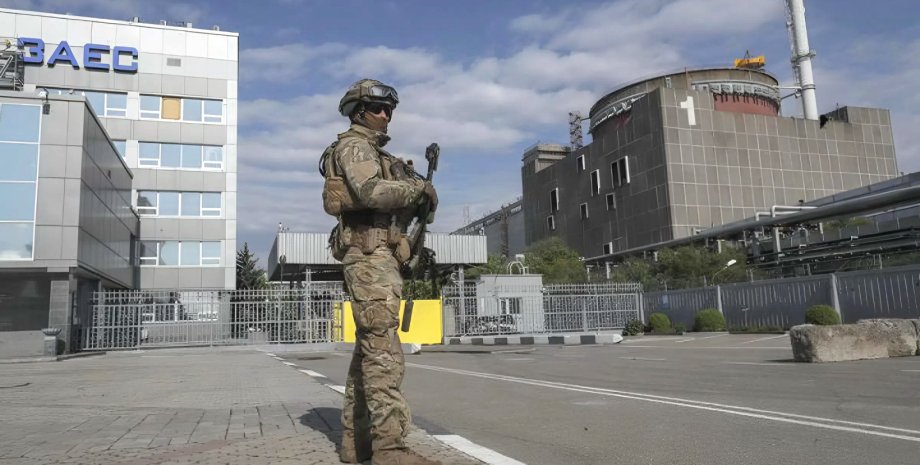
Analysts have noticed that the peculiarity of modern war - nuclear stations in the fighting area, and decided to explain what was happening. Nuclear power plants became pawns in the war between Russia and Ukraine. During the war in Ukraine, attacks on nuclear objects and nearby territories have become commonplace, and the consequences can be catastrophic, warning military observers. Focus has translated the article by Molly Blekol's correspondent on the news portal of the UK The Ipaper.
In the article "Attacks on nuclear power plants become the norm, and the consequences can be catastrophic" the author has collected information about threats to the NPP in the Russian-Ukrainian war and how the situation will develop in the future in Ukraine, the Russian Federation and other countries with nuclear power. This week, Russia accused Ukraine on Sunday attacks of drones, which resulted in damaged Kursk Nuclear Power Plant, located approximately 60 km from the Ukrainian border.
The management of the power plant stated that after midnight, air defense has shot down a drone that exploded near the power plant. The incident damaged the auxiliary transformer and led to a decrease in the power of the station by 50%. It happened on the day when Ukraine celebrated the 34th anniversary of independence.
Ukraine did not comment on the incident, but the Ukrainian military insider told The Ipaper newspaper that during previous operations near the plant, the troops were ordered not to attack it. Another insider indicated that it could be an accident: drone operators work seven days a week, and sometimes there are unforeseen situations.
Many are afraid of a nuclear accident as a result of the Russian invasion, as the fighting is conducted near two large NPPs: Kursk and Zaporizhzhya, which is the largest nuclear power plant in Europe. The IAEA Nuclear Agency Agency, the UN nuclear control body, reported that after the attack, the radiation level around the Kursk NPP remained normal. Military experts claim that hostilities in and near the NPP are becoming more and more normal.
Alexander Ballfras, a nuclear non -proliferation expert from the International Institute for Strategic Studies (IISS), said that since a full -scale invasion in February 2022, the Russians regularly strikes Ukrainian atomic energy infrastructure. "Some of them are inadvertent. "Many of the striking actions have become the norm during the war, including these attacks on nuclear energy Dr.
Maryna Miron, an expert in military research at the Royal College of London, says that attacks on nuclear power plants "can become some extent normally, and it is anxious. When it happens for the first time, all shocked, and you see this news in all the headers. like the norm.
" "When Ukraine started a counter -offensive in Russia last year, the idea was to capture the Kursk NPP and probably exchange it at the Zaporozhye NPP, then say: we exchange, give us this, and we will return to you," Miron said. Darya Dolzhikov, an expert in nuclear energy from the Royal United Institute for Defense Research (Rusi) in London, has previously warned that hostilities around nuclear objects "should not become a norm", but such attacks may become more frequent.
"The expected increase in the importance of nuclear power in the global energy balance in the coming decades may increase the likelihood that more attention will be paid to the infrastructure of nuclear energy in future armed conflicts," she comments. In addition to the task of infrastructure damage to the enemy and the demonstration of their military power, the "psychological importance" of nuclear objects means that they can be used for "the purpose of escalation, restraint or coercion.
" It can also be deliberate tactics of leakage of radioactive materials in order to convert the territory into an exclusion zone. But radiation can inadvertently spread to friendly territories or lead to escalation of conflict if radiation enters a third country. Lukash Kules, director of Rusi nuclear policy, says that although most nuclear reactors are relatively "well protected from attacks and accidents due to their reinforced structures, sometimes it is not so.
" "Some reactors in Russia, including Kursk NPPs, do not have such a protective concrete dome that makes them more vulnerable and dangerous in the event of attack," he said. "Artillery shelling, drone attacks and other hostilities can also threaten personnel who work at the facility and damage or destroy the infrastructure necessary for the functioning They can create a direct threat to the radiological incident.
" Kules warned: "The fact that previous incidents associated with the nuclear security of Zaporizhzhya NPP have not led to a nuclear accident, should not be calmed us. There is a danger that international norms concerning the prohibition of military attacks on nuclear power plants, as well as the efforts of the non in other conflicts. " However, Bollfras believes that these attacks are unlikely to lead to the next Chernobyl.
"The most serious damage was caused by the objects themselves and their ability to supply electricity, as well as the integrity of Ukraine's energy system," he says. "Weapons such as a rocket that struck the fuel storage facility or the reactor in action, would create a serious radiological danger, but no more They were inflicted with drones with much less powerful warheads.










All rights reserved IN-Ukraine.info - 2022